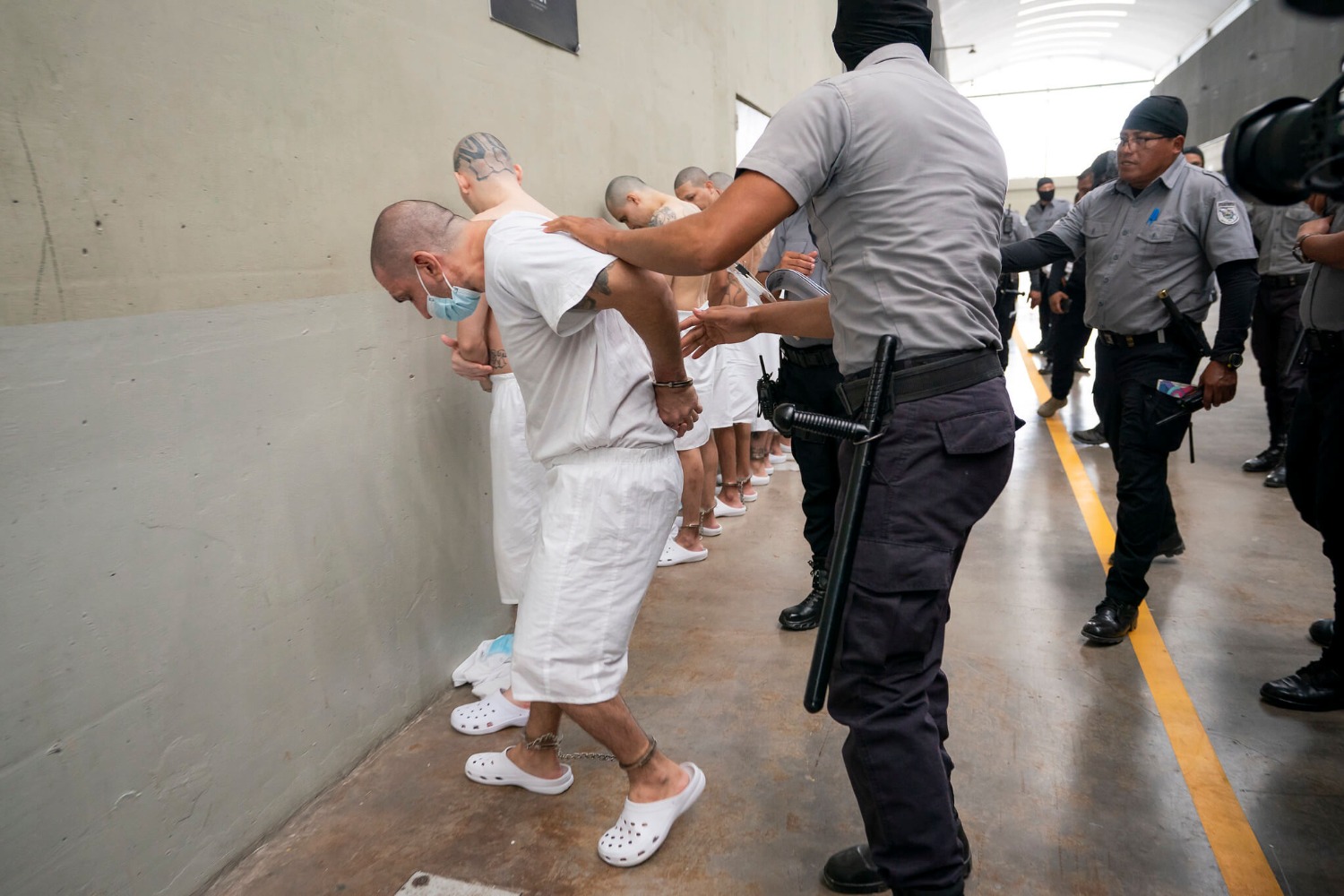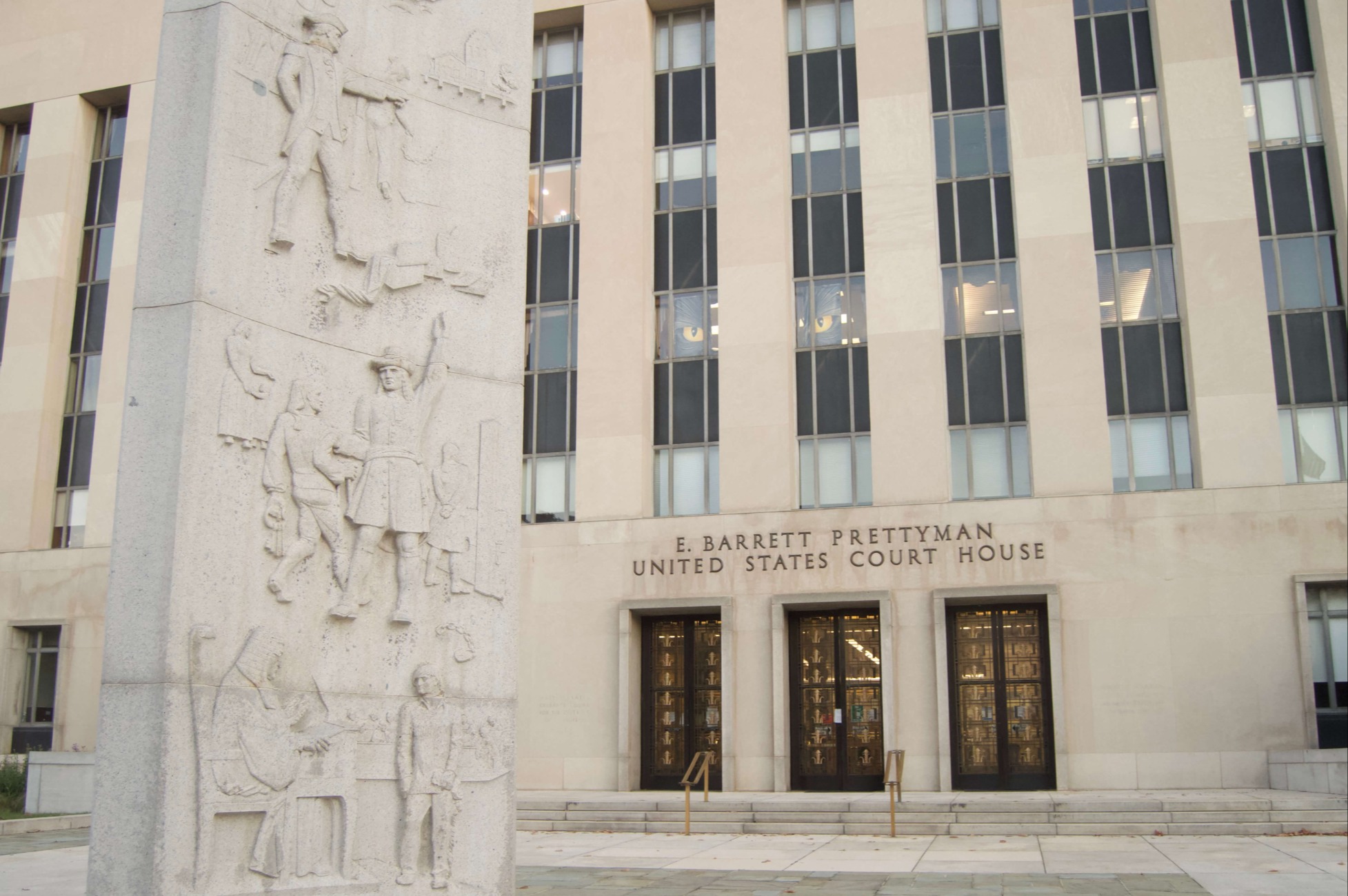The Situation: Vindicating the Semblance of Due Process
A meditation on Judge Boasberg’s contempt ruling in increasingly run-on sentences.

Published by The Lawfare Institute
in Cooperation With

The Situation on Monday ruminated on the tools in the hands of the two judges seeking to hold the Trump administration accountable for deporting people to Salvadoran prisons.
Today, one of those judges took his shot.
In case you’ve forgotten the J.G.G. case in a week of market turmoil, tariffs, and intense media interest in one man sent to a Salvadoran gulag on March 15, this is the case about those other guys sent to the same Salvadoran gulag on that same day—the ones sent under the president’s Alien Enemies Act proclamation and put on a pair of planes that were mysteriously not turned around when federal judge James Boasberg ordered that they be turned around so that the people on them could get some semblance of due process.
Remember that case? It has been a while—all of nine days since the Supreme Court vacated Judge Boasberg’s order because the case should have been brought in a different court and under a different statute even though the court also said that if the administration is going to deport people under the Alien Enemies Act, they are entitled to some semblance of due process.
But it turns out that federal district judges have long memories, particularly when you go behind their backs and pack two planeloads full of deportees before you issue your proclamation, conceal from them that you are planning to deport these people, stall for time, ignore their orders, transfer the detainees to foreign custody hours after they order you not to do so, and then stonewall them for a month about basic information about the flights, the preparation for the flights, the diplomatic arrangements, and your own legal arguments—even as you release pictures of the planes, mock the courts on social media, and show videos of the detainees, all of whom still have had no semblance of due process.
So today, Judge Boasberg dropped a 46-page opinion finding “that probable cause exists to find the Government in criminal contempt” and that “The Constitution does not tolerate willful disobedience of judicial orders—especially by officials of a coordinate branch who have sworn an oath to uphold it” and that “To permit such officials to freely ‘annul the judgments of the courts of the United States’ would not just ‘destroy the rights acquired under those judgments’; it would make ‘a solemn mockery’ of ‘the constitution itself’” and finding, as well, that it does not matter that the Supreme Court later vacated the order that the government previously violated because “it is a foundational legal precept that every judicial order ‘must be obeyed’—no matter how ‘erroneous’ it ‘may be’—until a court reverses it,” and finding that this means that Judge Boasberg’s order to turn those planes around, wrong as it may have been in terms of the venue of the district court that should have been entering it, was law unto those government officials who ignored it and failed to give those deportees any semblance of due process.
And thus did Judge Boasberg offer the government a simple choice: He gave the defendants until April 23 to propose a plan to purge their contempt or to identify the contemnor—the person who gave the order to not turn the planes around, and Judge Boasberg did not lay out what exactly purging the contempt would look like precisely, but he did say that “The most obvious way for Defendants to do so here is by asserting custody of the individuals who were removed in violation of the Court’s classwide [order] so that they might avail themselves of their right to challenge their removability through a habeas proceeding” but he also says that, “The Court will also give Defendants an opportunity to propose other methods of coming into compliance, which the Court will evaluate,” and he did not say exactly what he would do to get to the truth, but he did say that “the Court will proceed to identify the individual(s) responsible for the contumacious conduct by determining whose ‘specific act or omission’ caused the noncompliance,” because either those deportees are going to get what they’re entitled to or he’s going to out and punish the miscreants who are keeping them from their semblance of due process.
And Judge Boasberg, I think, knows that the government has a third option, which is to appeal again and go up to the Supreme Court to complain that a single district judge is holding hostage the entire foreign policy of the United States and to complain in public that a single liberal district judge is trying to take over the State Department and the Department of Homeland Security and the foreign policy prerogatives of the president of the United States and wants to hold executive branch officials in contempt for failing to follow a lawless order that the Supreme Court already overturned and to have members of Congress introduce impeachment resolutions against this judge and to have other members of Congress talking about stripping the courts of jurisdiction over things and to do all of this knowing that while throwing up a lot of smoke won’t change the fact that the administration knowingly and intentionally and flagrantly violated a court order and Judge Boasberg’s opinion shows that conclusively, it will cause all kinds of people who should know better—not to mention even more people who probably can’t be expected to know better—to believe that the problem is the district judges who object to presidential lawlessness rather than to the lawlessness itself and the fact that his lawlessness has caused a couple of hundred people to rot in a Salvadoran prison with no semblance of due process.
And Judge Boasberg, I think, knows as well that the government has a fourth option too—and that that option is to stonewall this order, just as it stonewalled the one on which this order follows up—and that is to decline to “purge” its contempt because that would mean letting this unelected district judge run U.S. foreign policy and force the president of the United States to recover people he designated as gang members and terrorists from the sovereign government of El Salvador which doesn’t want to give them back because the president doesn’t want them back, and to decline to assist the judge in inquiring into the identity of the miscreant who caused this misadventure because, well, that person was—let’s just be honest about this—doing exactly what the president wanted, just as the president of El Salvador is now doing exactly what the president wants, and Judge Boasberg knows that this option is not incompatible with the third option—which is to say that the government could appeal the contempt order and go all the way up the appellate ladder once again and then, if and when it loses, stonewall anyway and drag things out for weeks or months more, during which time the deportees will continue to rot in the Salvadoran gulag with no semblance of due process.
And Judge Boasberg, I suspect, also knows that he has only a faint chance of getting the government to bring these people back, and he knows, I suspect, that he has only a slightly-better-than-faint chance of creating a clear record of who precisely the miscreant was who engineered this disaster, and he knows also—I’m fairly confident—that there’s a good chance that the government’s stonewalling will work, that he can’t force the American president to force the Salvadoran president to reload those planes and fly them back, and he might not even be able to force the government to reveal how this all came to pass and who is to blame for the violation of the court order and the deprivation to hundreds of men before deportation of any semblance of due process.
But damn it, he’s doing it anyway, because he’s a federal district judge, and the government defied his order, and Stephen Miller thinks that the administration’s gamesmanship with the most basic principles of the rule of law is just oh-so-clever, and the judge—with impeccable calmness and civility—is going to do everything in his power to remedy that, full well knowing that there are limits to his power, but knowing that his job is to make sure that someone asks every proper question, issues every reasonable order, and pulls on every available lever to vindicate that semblance of due process.
Succeed or fail, this is how it’s done.
The Situation continues tomorrow.





